Songwriting, just like singing, is not, as many people think, a mysterious talent that some people have and others do not. Both singing and songwriting have very specific skill sets that must be mastered and can be taught. The talent aspect comes in after you have invested yourself and learned the fundamental skills and is evidenced in how you apply these skills. For example, we all learn our ABC’s in school. But some keep working at it until they can write Pulitzer Prize winning novels, while others can barely spell or construct a coherent sentence.
In the same way, there are fundamental skills that every singer and songwriter needs to learn in order to become a prizewinning artist. In the case of songwriting, the elements that need to be mastered are: lyric, melody, harmony, rhythm, and song form. Each of these can be studied separately, as “spokes of the wheel” of songwriting. A good songwriter combines all these elements at the same time when creating a song.
A primary element to good songwriting is the “hook” (often the title of the song). I tell all the songwriters who work with me to keep a notebook, and in it they are to come up with 5 great “hooks” or titles every day. These can come from ordinary conversations, movies, new phrases coming into vogue, or from anywhere. Keep your ears open for uniquely said phrases or different approaches to saying things. Once you have a great hook, or title, next sit down and write a “Who, What When Where and Why” about the phrase you came up with. Tell a story and flesh out all the details. This will help you avoid the common problem of not being able to think of anything to say for the second verse. Now, take your hook and write at least a 4 line chorus that contains the hook, and uses some kind of rhyme-scheme. Now, you have a chorus for your song!
Remember- if you are just writing words to someone else’s “beat” you are not a songwriter. You are a lyricist. If you want to be a songwriter (and keep all the revenues if your song sells) you will need to learn how to create your own melodies and chords. You don’t have to play an instrument extremely well to be a songwriter, but it really helps if you know how to play basic chord progressions and you have an understanding of functional harmony. You don’t have to read music, but learning chords and contemporary chord progressions is fundamental.
Please don’t think that clicking and dragging some loops is songwriting, or being a musician. Again, you are not really creating music, but only manipulating something that was created by someone else. Learn how to play a few chord progressions on the piano or guitar, and know how those chords relate to each other. Then sing a melody over that. Combine this with the lyrics from your daily notebook to create the chorus of your new song. Congratulations, now you are writing your own song!
Learn the craft of songwriting- song form, rhyming rules, where the bridge goes, how long the verse and chorus sections of your song should be. Learn enough music theory to construct your own chord progressions, and create your own beats rather than using someone else’s. When you can do all these things yourself, you can call yourself a songwriter. Remember, these skills can all be taught and learned. They are not some mysterious gift that some people are born with, but are developed and practiced and honed skills.
Songwriting is the perfect way to express your deepest emotions. It can be very therapeutic and fulfilling. Developing your skills as a songwriter will not only greatly assist in your evolution as a creative person, but it just might pay off in huge assets if you write a hit song!
I wish you all the best as you reach for your dreams! Tricia Grey, MM
At Sing Like a Star Studios you can learn songwriting, as well as the vocal technique of the stars. If you don’t live near Atlanta, you can take voice lessons with Skype. Please visit our website at www.singlikeastar.com and click on the GET STARTED tab to register for a professional vocal evaluation and consultation.


